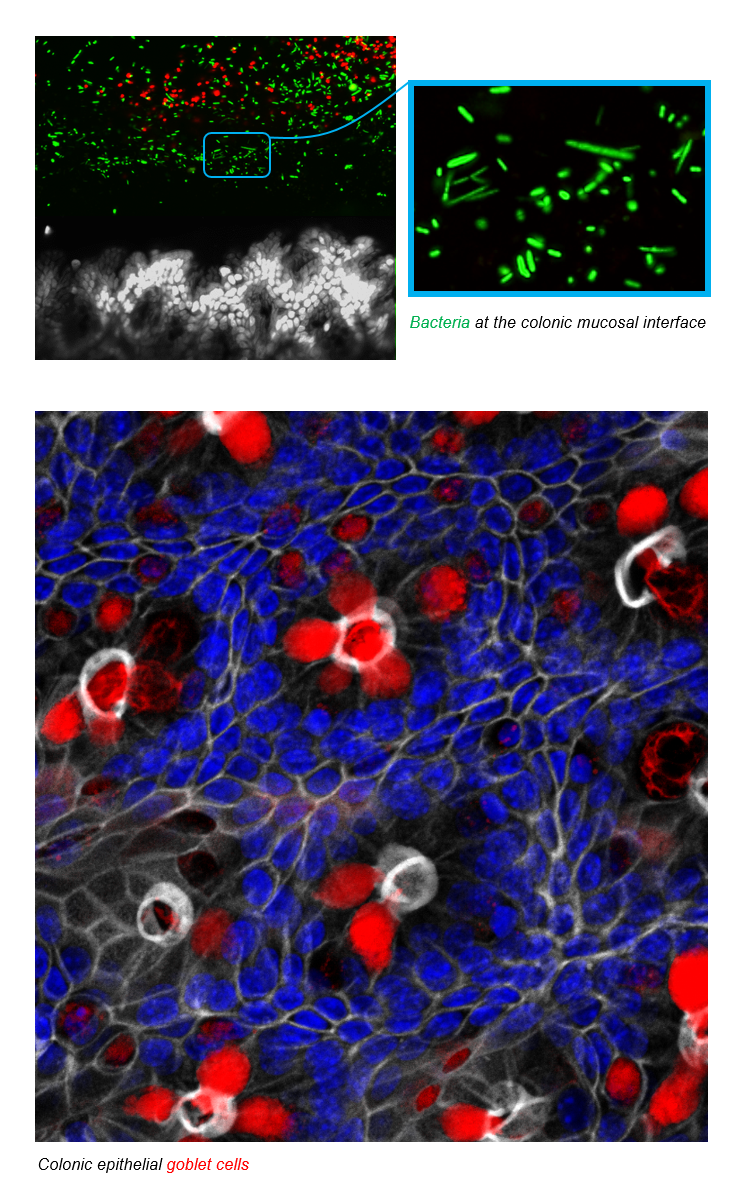Goblet Cells
Mucus
Mucosal Defence
Our lab explores the mucosal surfaces that are the largest interface between the environment and our tissues. Their critical functions necessitate exposure of living cells to a vast collection of microbial lifeforms that includes many opportunistic and obligate pathogens. The epithelial cell layer strictly controls interactions between this environment and our internal systemic tissues. However, this single layer of cells can only endure in this setting due to the multi-layered defensive functions of the epithelial cellular lineages.
Our favourite epithelial lineage are the goblet cells that specialise in the synthesis and secretion of gel-forming mucins and other mucus components that restrict microbial access to the epithelium. Historically considered a single, unifunctional cell type, our research shows that they comprise multiple, functionally diverse sub-populations that contribute to different aspects of mucosal defence, thereby regulating our interactions with the mucosal environment.
In collaboration with the wider Mucin Biology Groups cluster at the University of Gothenburg and both national and international partners, our laboratory seeks to develop new tools allowing the identification and characterisation of goblet cell-mediated defence systems. Our goal is to understand their roles in the pathoaetiology of mucosal-related diseases including colorectal cancer, infections, inflammatory bowel disease and pre-term birth, with the ultimate purpose of developing innovative prophylactic and therapeutic strategies.

